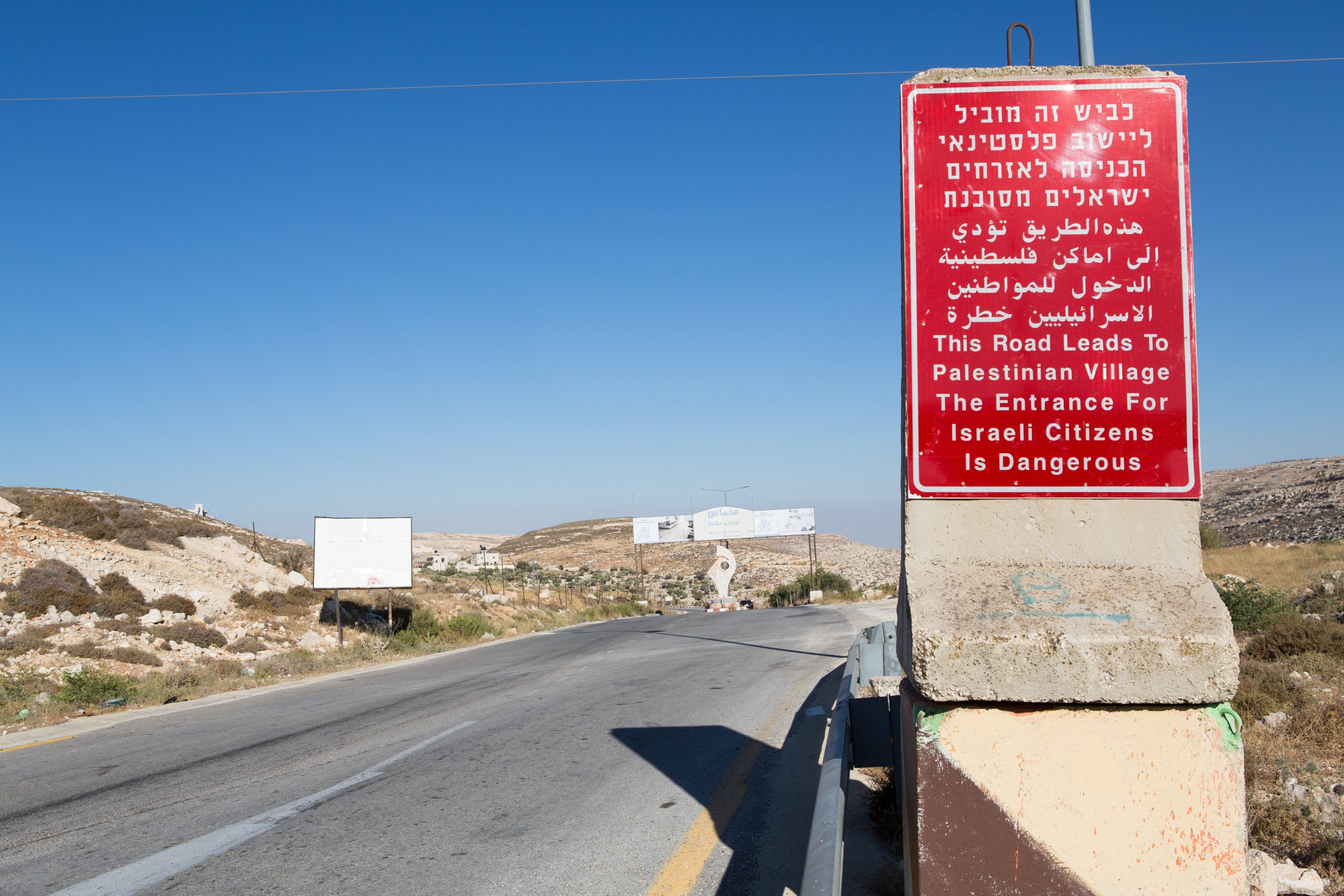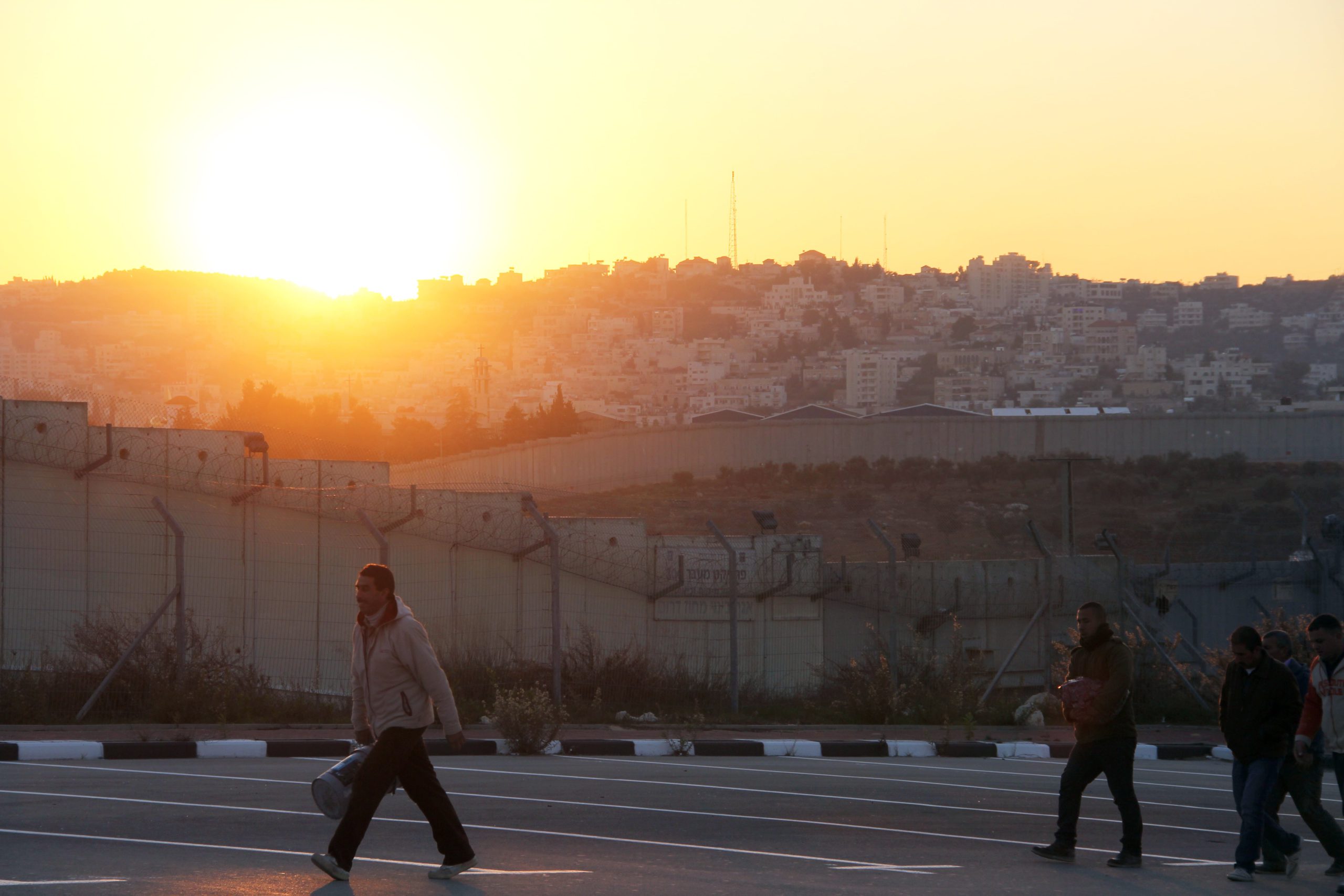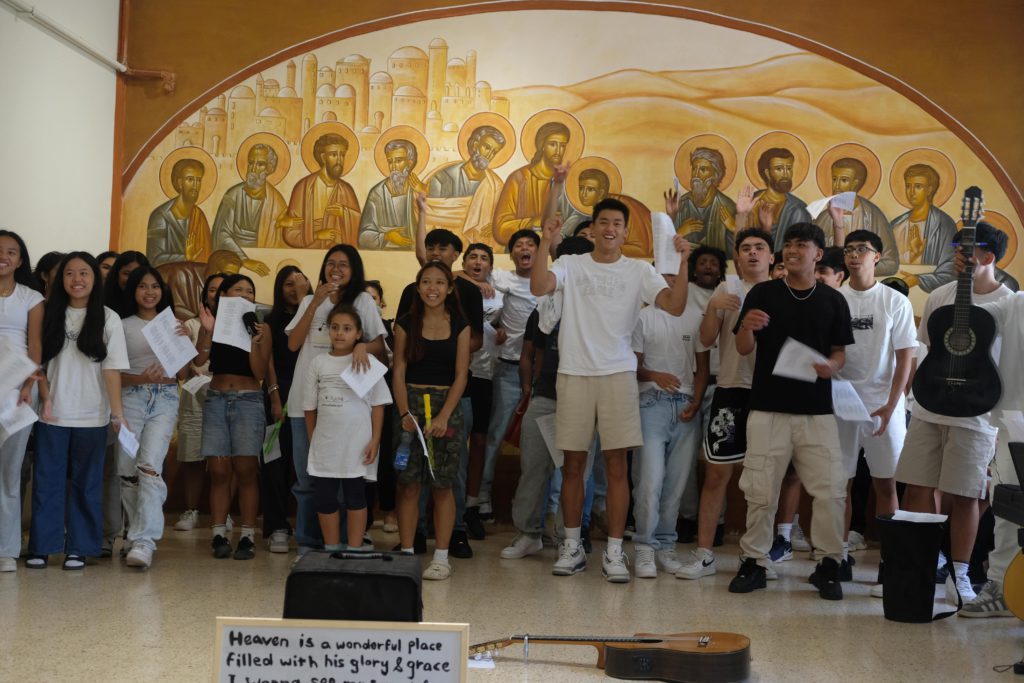During a recent trip to the Holy Land, an ACN delegation spoke to young people and those involved in youth ministry in different regions, and found that though the challenges differ, all of them face difficulties, with many turning to their faith for solace and hope.
One year after the terrorist attack that unleashed the current war in Gaza, young Christians in the Holy Land are feeling lost and hopeless about life ever returning to normal.
“In our culture, we don’t leave our parent’s house before getting married, so people continue to live with their parents. I want to leave, but I can’t without getting married and at 27 I can’t afford my own house, so I can’t afford to get married,” says Raffi Ghattas, a Christian journalist with the Youth of Jesus’ Homeland, the youth chaplaincy in Palestine, which provides pastoral support for Christians in Jerusalem and the West Bank and operates under the umbrella of the Latin Patriarchate of Jerusalem.
“With no hope, people try to leave, and many do not have children or marry,” says Dima Khoury, the director of Social Services at the Latin Patriarchate of Jerusalem. “It is very difficult to give them hope. The ones who do have children have just one or two. It takes a full salary of one of the spouses just to cover rent, so both have to have jobs,” she adds, and jobs, of course, have also been scarce since the latest war began, because many Christians worked in tourism, which, because of the conflict, is almost non-existent.
When asked, all the young Christians say they just want to return to life as it was before 7 October. Raffi, however, points out that “before October we lived in a routine. The first time I realised this was when I went on vacation to Turkey, as a child, and asked the guide where the checkpoints were.”
“In Jerusalem there was a checkpoint under our house. I lived ten minutes from my school, but I always had to stand at the checkpoint. One day, when I was eight years old, the soldier asked me to tell him my ID number in Hebrew. I couldn’t and I started to cry. They were teasing me, and he kept me in a corner for two hours until I learned it by heart. I only realised later that nobody should have to live like this. People say that until the war everything was ok, but it wasn’t. We were just used to it,” he believes.
Many native Arabic-speaking Christians used to live in West Jerusalem, having been pushed into the East when Israel occupied the city. The result is that now the Christian families do not own their own houses or land and are dependent on sky-rocketing real-estate prices.

Bearing the cross in the West Bank
Life in the West Bank comes with its own challenges. Before 7 October, 180,000 Palestinians had permits that allowed them to go to work in Israel, but almost all of these were revoked after the attacks, and so far, only 10,000 have been renewed, mostly for doctors, nurses and some teachers who mainly work in Jerusalem.
During a meeting with the Youth of Jesus’ Homeland (YJH) group, in Ain Arik, on the outskirts of Ramallah, Shaheen tells ACN that he used to earn around 120 dollars a day working as a blacksmith in Israel. Now, if he is lucky, he’ll earn one tenth of that working in the West Bank. Ghadeer, a young girl who works for the Palestinian Authority (PA), earns only half a salary every three months, because Israel has been withholding the customs and VAT funds it usually transfers to the PA.
The YJH meeting takes place in an abandoned building, where, with the help of ACN, the Church plans to build a new youth centre. The group is led by Fr Louis, a charismatic young priest from Jordan who has breathed new life into the local youth ministry. “We had some difficulty in finding a suitable place to have summer camps, spiritual retreats or Bible studies. This is a good, neutral, relaxed place, far from the city and lies in the centre of the West Bank, which makes it accessible to all,” he tells ACN.
An important criterion for the location of the centre is the absence of Jewish settlements nearby. “Wherever there is a settlement, there is a checkpoint, and a conflict spot between settlers and Palestinians, which means the road can be closed. It would be difficult and dangerous for the young people,” Fr Louis explains.
Amidst the difficulties, the members of the YJH see it as their mission to maintain and strengthen the connection of the remaining Christians with their religion. “Our first priority in youth ministry is teaching the young people to belong to their land not because they are Palestinian, but because when God decided to become incarnate, He chose this land. This is a privilege, but it is also a cross. We are bearing this cross,” says Raffi.
“If the Christians leave,” adds Fr Louis, “the holy places will be like cold and abandoned museums. We insist to the young people that they do not emigrate, because Jesus lived and died here.”
The Israelis who feel they don’t belong
Many of the problems faced by Christians in the West Bank and Jerusalem spring from the fact that they are not entitled to Israeli citizenship. This is not the case for the Arabic-speaking Christians in the north of the country, who are Israeli nationals.
However, this does not mean there are not difficulties. “Israel is a very secular and individualistic society, with a lot of focus on material goods and on success,” says Bishop Rafic Nahra, the Latin Patriarchal Vicar for Israel, who resides in Nazareth, Galilee.
With support from ACN, the Church has been working hard to create a centre for young people, to accompany them and instil in them the values that society lacks. Fr Ramez Twal, who leads the youth ministry in Haifa, explains that people were initially reluctant to attend events, but that over time, the Church has won them over. “From 2022 to 2024, we attracted over 1,000 participants to our events, which is very good. Thanks to ACN we have a course for leadership, communication and conflict resolution, the first in Galilee.”
Fr Jonny Abu Khalil was sent to Haifa to get the pastoral centre up and running and explains that there are also plans to build a restaurant and a guesthouse. “Some young people will not come to the conferences and courses, because they feel they don’t have the education, they feel ignorant in terms of faith. But if we have the restaurant they will come, and if the priest is there they will talk and ask questions. Having the guesthouse will also allow us to create jobs, for those who lost their jobs in the Israeli hotels after 7 October.”
After October 7, many Arab Israelis who felt perfectly integrated into society suddenly found themselves viewed with suspicion. “The war sparked more separation and discrimination. Palestinians in Galilee used to feel like Israelis, but now they feel like second-class citizens. They need a place to strengthen their identity. Their Christian identity is weak, and their national identity is confused, they cannot say they are Palestinians, nor can they say they are Israelis after what happened,” Fr Jonny says.
The identity crisis is a serious issue, Fr Twal explains. “They are not seen as Israelis by the Jews, but they are also not seen as fully Palestinian by the Arabs in the West Bank, they mix Hebrew and Arabic in the same sentence and the people in the West Bank do not seem to recognize that they have different identities and challenges.”

The ones who feel they belong, but are not Israelis
If, for some, the problem is not feeling part of the country to which you belong to, for others the issue is not belonging to the country of which you feel part of.
Israeli law is very restrictive about granting citizenship to non-Jewish foreigners, including those who were born in the country, such as the children of immigrants and asylum seekers, including many Christians. “Culturally, they are 100% Israeli. They speak Hebrew, they dress in the Israeli way, they listen to Israeli music, they support Israeli sports clubs,” says Fr Piotr Zelazko, Patriarchal Vicar for the Saint James Vicariate, which cares for the small Hebrew-speaking Catholic community in Israel.
ACN visited Fr Piotr at a summer camp for the children of migrants and asylum seekers which is supported by the charity. These camps are crucial to keeping the young people firm in their faith, says Sister Gabriele Penka, the administrator of the vicariate. “They live in the Israeli-Jewish society, so it is very difficult for the young people to stick to their Christian identity, keep the Faith and remain members of the Catholic community.”
“For the first time we have young people aged 18, who do not have a legal status. It has happened in the past that Israel grants them permanent residency, so they can then do their military service, like other Israelis, but at the moment this is not possible, so we are trying to see what options these young people have for their future. There is still a risk that they could be rounded up and deported,” Sister Gabriele explains.
Fr Piotr describes how the children are always alert to the possibility of raids by the immigration authorities. “These usually happen in the holidays, because when they are at school their Israeli friends and teachers defend them. But in the summer, you can get rid of the children, so they disappear, and there is nobody to protest,” he says.
In the past, the Israeli government has allowed children of immigrants to enter the army, in return for citizenship. “When the war started, we thought the Government would conclude that it needs them, but no. It is more important for some politicians to ‘keep Israel pure’. They really use this language, it is painful to hear,” says Fr Piotr.
ACN increased its support for Christians in the Holy Land after the 7 October attacks and the beginning of the war. Knowing that without young people there will be no future for the Christian community in the land of Jesus, the pontifical foundation has prioritised supporting initiatives that help give hope to this population, through education and job creation, or simply by helping to strengthen their identity through faith formation.


